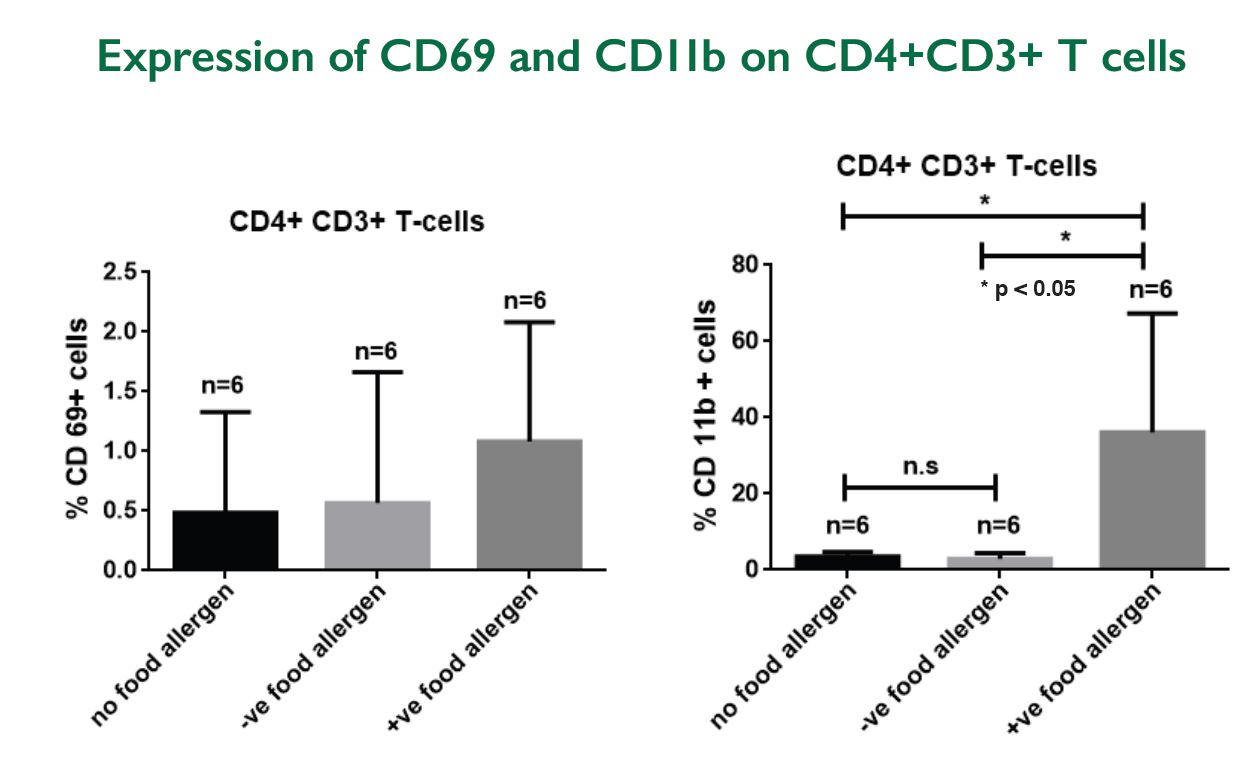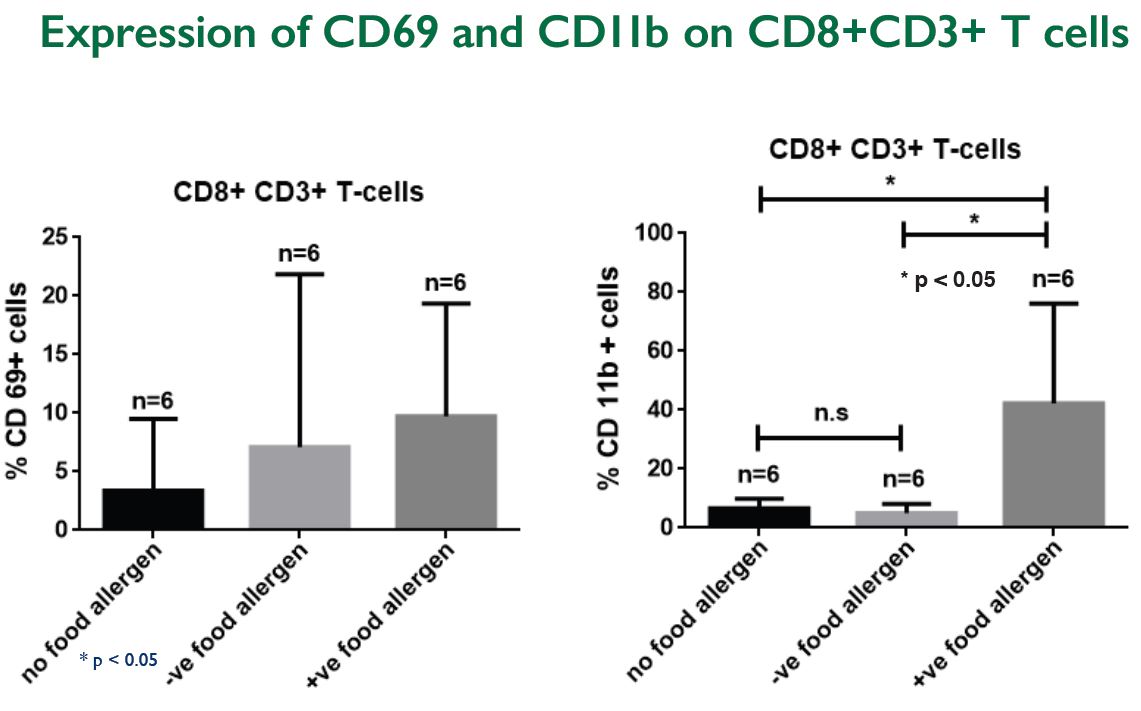Ayaz Ghani md 1, Wajahat Mehal md dphil 1, Ather Ali ND MPH 2
(1) Section of Digestive Diseases, Yale University, School of Medicine. New Haven, Connecticut
(2) Department of Pediatrics, Yale University, School of Medicine, New Haven, CT USA
Background
The Alcat Test for food sensitivity is based on leukocyte activity in the presence of food antigens. Despite the widespread clinical application of the Alcat Test, the cellular and molecular steps responsible for a positive test have not been identified.
We quantified activation markers on peripheral blood lymphocytes from healthy volunteers in response to severe intolerance or no reaction foods on the Alcat Test.
Hypothesis
We hypothesized that positivity on the Alcat Test is associated with up-regulation of plasma membrane markers on peripheral blood immune cells.
Materials and Methods
Reactivity of peripheral blood lymphocytes from 10 volunteers to 200 antigens was determined by Alcat Testing. On a subsequent day, peripheral blood lymphocytes from the same volunteers were exposed to a single severe intolerance and no reaction food extract, or left untreated.
Flow cytometry (FACS) was performed to examine activation markers. CD69 and CD11b levels were quantified after gating on:
• T cells (CD3+ and either CD4+ or CD8+)
• B cells (CD19+)
• Neutrophils (CD66b+CD16+)
• Monocytes/macrophages (CD14+CD16+)
• Eosinophils (CD66b+CD16-)
• Basophils (CD123+CD66b-CD16-)
Results
Six samples met technical criteria for successful FACS analysis. Activation marker CD11b was significantly increased in both CD4+ and CD8+ T cells after exposure to severe intolerance antigens. In CD4+ T cells: 3.5% of untreated cells were CD11b+, 2.9% of cells exposed to no reaction foods were CD11b+, while 36.2% of cells exposed to severe intolerance foods were CD11b+.
In CD8+ T cells: 6.6% of untreated cells were CD11b+, 5.1% of cells exposed to no reaction foods were CD11b+, and 42.3% of cells exposed to severe intolerance foods were CD11b+.
These relationships were statistically significant at p=0.05. Other activation marker associations did not demonstrate any significant differences.
Conclusions
Severe intolerance on the Alcat Test is associated with an up-regulation of CD11b on CD4+ and CD8+ T cells.
This study provided detailed analysis of well-characterized cell populations, but was limited to a single time point of analysis.
Identification of activation markers can provide a biological understanding of food sensitivity, and may form the basis for more targeted clinical management.
Future Plans
We will be testing if severe intolerance on the Alcat Test is associated with degranulation of neutrophils.
We will be testing if severe intolerance on the Alcat Test is associated with activation of the inflammasome pathway in human peripheral blood monocytes.
We will assess the clinical efficacy of personalized dietary advice (based on Alcat Testing) vs. control dietary advice in a randomized controlled trial in 58 adults with irritable bowel syndrome. We will correlate findings from these experiments to clinical outcomes in study subjects.
Acknowledgements
We thank Theresa Weiss, MPH for her support and contributions.
Funding
Grant support from Cell Science Systems Corp. (Florida, USA).
Contact
ather.ali@yale.edu
Department of Pediatrics, Yale University
wajahat.mehal@yale.edu
Section of Digestive Diseases, Yale University
This study has been approved by the Yale University Human Research Protection Program/Institutional Review Board for research involving human subjects.
















